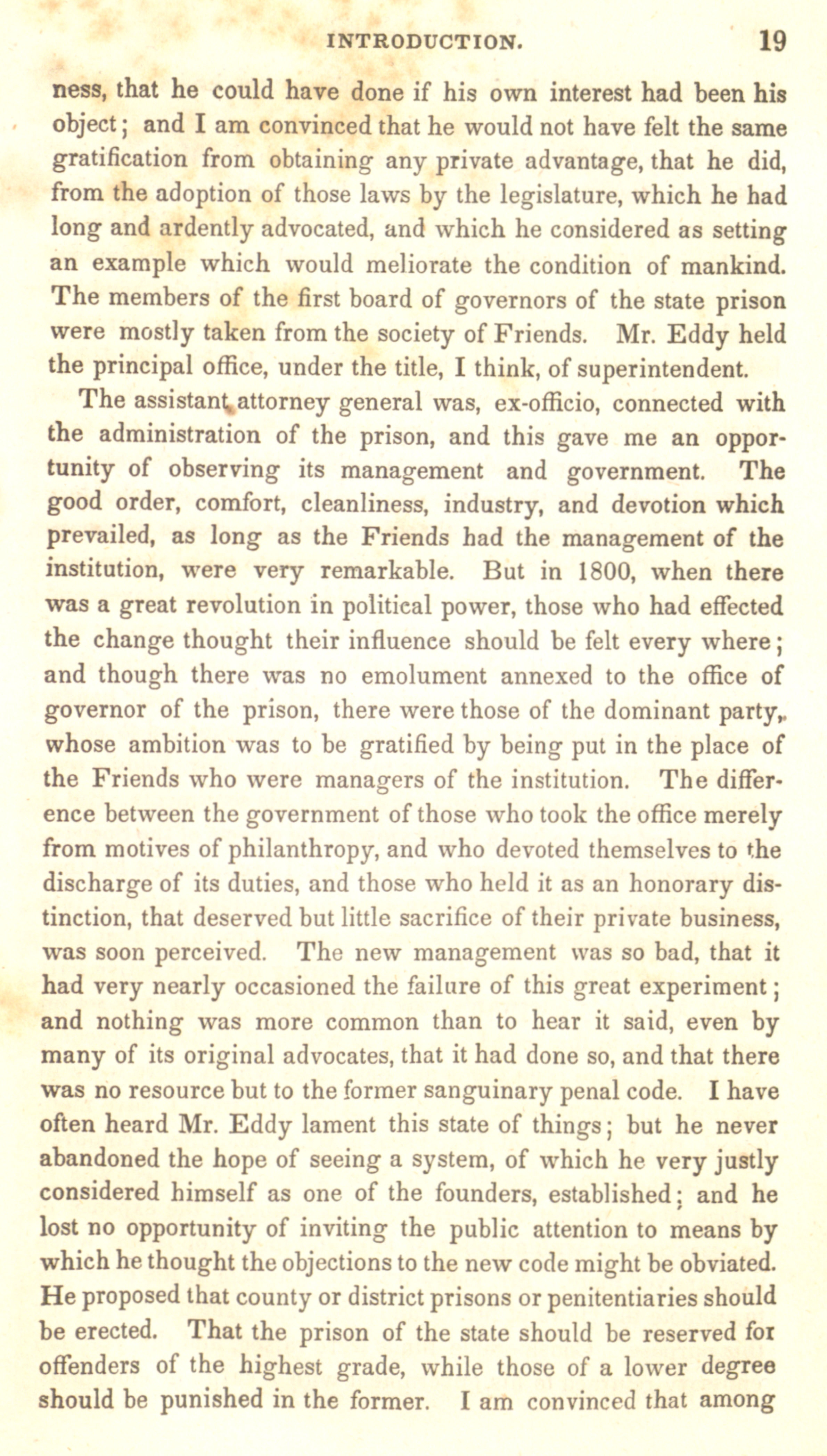ness, that
he could have done if his own interest had been his
object; and I
am convinced that he would not have felt the same
gratification
from obtaining any private advantage, that he did,
from the
adoption of those laws by the legislature, which he had
long and
ardently advocated, and which he considered as setting
an example
which would meliorate the condition of mankind.
The members of the
first board of governors of the state prison
were mostly taken from
the society of Friends. Mr. Eddy
the principal office, under the title, I think, of superintendent.
The assistant attorney general was, ex-officio, connected with
the
administration of the prison, and this gave me an oppor-
tunity of
observing its management and government. The
good order, comfort,
cleanliness, industry, and devotion which
prevailed, as long as the
Friends had the management of the
institution, were very
remarkable. But in 1800, when there
was a
great revolution in political power, those who had effected
the
change thought their influence should be felt every where;
and
though there was no emolument annexed to the office of
governor of
the prison, there were those of the dominant party,
whose ambition
was to be gratified by being put in the place of
the Friends who
were managers of the institution. The differ-
ence between the
government of those who took the office merely
from motives of
philanthropy, and who devoted themselves to the
discharge of its
duties, and those who held it as an honorary dis-
tinction, that
deserved but little sacrifice of their private business,
was soon
perceived. The new management was so bad, that it
had very nearly
occasioned the failure of this great experiment;
and nothing was
more common than to hear it said, even by
many of its original
advocates, that it had done so, and that there
was no resource but
to the former sanguinary penal code. I have
often heard Mr. Eddy
abandoned the hope of seeing a system, of which he very justly
considered himself as one of the founders, established; and he
lost no opportunity of inviting the public attention to means by
which he thought the objections to the new code might be obviated.
He proposed that county or district prisons or penitentiaries should
be erected. That the prison of the state should be reserved for
offenders of the highest grade, while those of a lower degree
should be punished in the former. I am convinced that among

